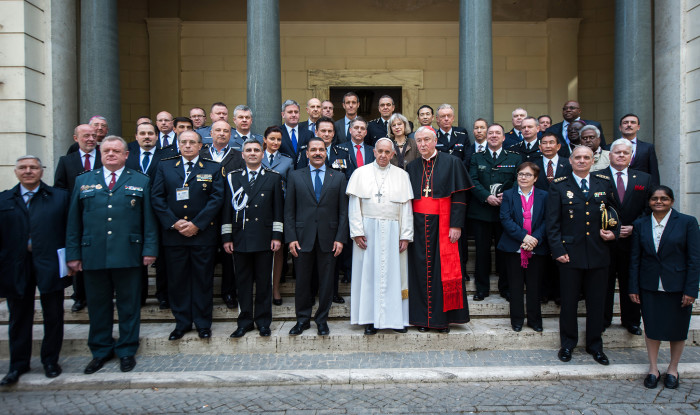
Pope Francis is on record as calling modern slavery “a crime against humanity”. Over 200 years since the British Parliament abolished the transatlantic slave trade and began an international campaign, led by the Royal Navy, to eradicate it, the Home Office estimates that there are around 13,000 potential victims of modern slavery in the UK alone. Traffickers and organised criminals exploit millions of human beings around the world as commodities, forcing men, women and children to work in areas like prostitution and sexual exploitation, forced labour, domestic servitude, organ trafficking and forced begging.
Britain’s Modern Slavery Act comes into force in 2016. It is comprehensive and groundbreaking legislation that may be the model for other countries, and strengthens our powers to tackle this horrendous crime. It also assumes working with partners, something that is a priority for the Independent Anti-Slavery Commissioner, Kevin Hyland. One critical partner, and the reason for a recent visit to the Vatican by Mr Hyland, is the Holy See.
I have often spoken about the value of the global Holy See network, that extraordinary network of diplomats, Catholic NGOs, religious congregations, priests, bishops and lay people, that is arguably the world’s most extensive soft power. With Pope Francis’s encouragement, it is beginning to operate effectively against human trafficking. Its diplomats secured the only amendment possible to the UN Sustainable Development Goals last year, with the inclusion of a commitment to “end modern slavery and human trafficking” that binds all 197 UN members. In April, the Holy See and UK will highlight the issue at an event at the UN in New York. In the meantime, on the ground, Catholic networks like Caritas Internationalis, Talitha Kum and female religious congregations are working every day in places like the Philippines, the UK, Italy or Lithuania, supporting victims, raising awareness, and reminding governments of their responsibilities.
One of Mr Hyland’s programmes is working with the Santa Marta Group, inaugurated by Pope Francis, the Home Secretary and the Catholic Bishops conference of England and Wales, to bring bishops and police chiefs together to tackle the crime. The first fruits will be a major project in Edu State in Nigeria, from where comes the vast majority of Nigerian women trafficked for sexual exploitation. The Pontifical Academy of Social Sciences has also taken a lead at the Holy See in raising global awareness, engaging mayors, judges, businessmen and young people from around the world through the unique convening power of the Vatican.
There are few networks that incorporate global leaders with academic experts, aid workers and diplomats, religious figures and business. The Holy See network is one of them. It is a powerful ally in our efforts to eliminate modern slavery. We look forward to continuing to work closely together as the Modern Slavery Act begins to have impact on this “crime against humanity”.
